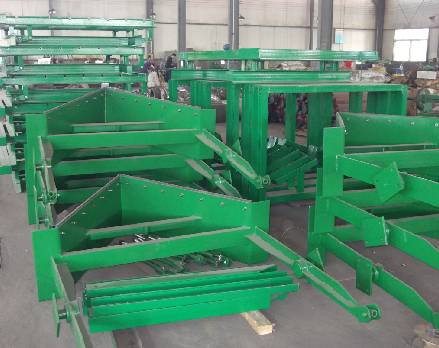 Afrikaans
Afrikaans  Albanian
Albanian  Amharic
Amharic  Arabic
Arabic  Armenian
Armenian  Azerbaijani
Azerbaijani  Basque
Basque  Belarusian
Belarusian  Bengali
Bengali  Bosnian
Bosnian  Bulgarian
Bulgarian  Catalan
Catalan  Cebuano
Cebuano  Corsican
Corsican  Croatian
Croatian  Czech
Czech  Danish
Danish  Dutch
Dutch  English
English  Esperanto
Esperanto  Estonian
Estonian  Finnish
Finnish  French
French  Frisian
Frisian  Galician
Galician  Georgian
Georgian  German
German  Greek
Greek  Gujarati
Gujarati  Haitian Creole
Haitian Creole  hausa
hausa  hawaiian
hawaiian  Hebrew
Hebrew  Hindi
Hindi  Miao
Miao  Hungarian
Hungarian  Icelandic
Icelandic  igbo
igbo  Indonesian
Indonesian  irish
irish  Italian
Italian  Japanese
Japanese  Javanese
Javanese  Kannada
Kannada  kazakh
kazakh  Khmer
Khmer  Rwandese
Rwandese  Korean
Korean  Kurdish
Kurdish  Kyrgyz
Kyrgyz  Lao
Lao  Latin
Latin  Latvian
Latvian  Lithuanian
Lithuanian  Luxembourgish
Luxembourgish  Macedonian
Macedonian  Malgashi
Malgashi  Malay
Malay  Malayalam
Malayalam  Maltese
Maltese  Maori
Maori  Marathi
Marathi  Mongolian
Mongolian  Myanmar
Myanmar  Nepali
Nepali  Norwegian
Norwegian  Norwegian
Norwegian  Occitan
Occitan  Pashto
Pashto  Persian
Persian  Polish
Polish  Portuguese
Portuguese  Punjabi
Punjabi  Romanian
Romanian  Russian
Russian  Samoan
Samoan  Scottish Gaelic
Scottish Gaelic  Serbian
Serbian  Sesotho
Sesotho  Shona
Shona  Sindhi
Sindhi  Sinhala
Sinhala  Slovak
Slovak  Slovenian
Slovenian  Somali
Somali  Spanish
Spanish  Sundanese
Sundanese  Swahili
Swahili  Swedish
Swedish  Tagalog
Tagalog  Tajik
Tajik  Tamil
Tamil  Tatar
Tatar  Telugu
Telugu  Thai
Thai  Turkish
Turkish  Turkmen
Turkmen  Ukrainian
Ukrainian  Urdu
Urdu  Uighur
Uighur  Uzbek
Uzbek  Vietnamese
Vietnamese  Welsh
Welsh  Bantu
Bantu  Yiddish
Yiddish  Yoruba
Yoruba  Zulu
Zulu Wing Pulley Production Solutions for Efficient Conveyor Systems and Enhanced Performance
The Importance of Wing Pulley Manufacturers in Modern Industry
Wing pulleys are increasingly essential components in various conveyor systems across multiple industries. The design of wing pulleys, characterized by their unique shape and function, enhances material handling efficiency, reduces operational costs, and minimizes environmental impact. This article explores the significance of wing pulley manufacturers, the advantages of wing pulleys, and considerations when selecting a manufacturer.
Understanding Wing Pulleys
Wing pulleys are designed with a set of curved, wing-like protrusions that create a more efficient and effective method for managing bulk materials on conveyors. Traditionally, conveyor systems utilized flat pulleys, which, while functional, posed several challenges in terms of material spillage, dust generation, and wear and tear on both the belt and the pulley.
The wing design of these pulleys helps in preventing material build-up around the pulley shaft. This is particularly important in industries handling aggregates, grains, or any bulk materials that can cause blockages. Wing pulleys are typically made of robust materials that withstand harsh working conditions, making them suitable for heavy-duty applications.
Advantages of Wing Pulleys
1. Reduced Material Build-Up The open-wing design allows for easier discharge of material, minimizing build-up around the pulley. This feature is crucial in preventing unexpected downtime due to blockages.
2. Improved Belt Life By reducing the friction between the belt and the pulley, wing pulleys help extend the life of conveyor belts. The minimized contact area also reduces the heat generated during operation, further enhancing belt longevity.
3. Dust Control Dust generation is a common issue in industries that handle dry bulk materials. The design of wing pulleys, which encourages the material to fall off the belt at the designated point, significantly reduces airborne dust, thereby promoting a safer working environment.
4. Energy Efficiency Wing pulleys contribute to the efficiency of conveyor systems, leading to lower energy consumption. Efficient material transfer means less strain on motors and drives, resulting in cost savings over time.
5. Versatility Wing pulleys are versatile and can be adapted to various applications, including agriculture, mining, and material handling. Different configurations and sizes are available to suit the specific needs of a business.
wing pulley manufacturer

Choosing the Right Wing Pulley Manufacturer
When selecting a wing pulley manufacturer, several key factors should be considered
1. Experience and Reputation Choose a manufacturer with a proven track record in the industry. Experienced manufacturers are more likely to provide high-quality products and reliable service.
2. Material Quality The longevity and performance of wing pulleys heavily depend on the materials used in their construction. Opt for manufacturers that use high-grade materials designed to withstand specific environmental conditions and loads.
3. Customization Options Many industries have unique requirements. A good manufacturer should offer customization options to ensure that the wing pulleys meet specific operational needs.
4. Technological Innovation The industry is continuously evolving, and manufacturers that invest in research and development are more likely to offer innovative solutions that can benefit your operations.
5. Customer Support Reliable customer support and after-sales service are crucial. A manufacturer that offers technical assistance, warranty options, and maintenance support is invaluable.
6. Certifications Look for manufacturers that comply with industry standards and certifications. This is an assurance of the quality and safety of their products.
Conclusion
Wing pulley manufacturers play a vital role in enhancing the efficiency and reliability of conveyor systems across various industries. The benefits of using wing pulleys, including reduced material build-up, extended belt life, and improved energy efficiency, underscore their importance in modern material handling solutions. By carefully selecting a reputable manufacturer based on experience, material quality, customization, and customer support, businesses can ensure optimal performance and cost savings in their operations. Embracing innovative solutions from qualified manufacturers can significantly impact productivity and sustainability.
-
Revolutionizing Conveyor Reliability with Advanced Rubber Lagging PulleysNewsJul.22,2025
-
Powering Precision and Durability with Expert Manufacturers of Conveyor ComponentsNewsJul.22,2025
-
Optimizing Conveyor Systems with Advanced Conveyor AccessoriesNewsJul.22,2025
-
Maximize Conveyor Efficiency with Quality Conveyor Idler PulleysNewsJul.22,2025
-
Future-Proof Your Conveyor System with High-Performance Polyurethane RollerNewsJul.22,2025
-
Driving Efficiency Forward with Quality Idlers and RollersNewsJul.22,2025





























